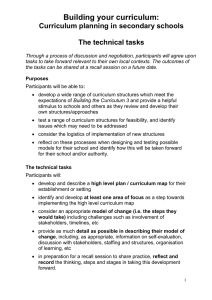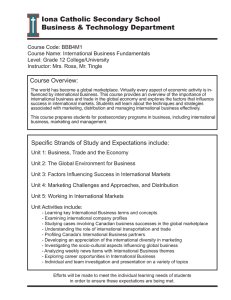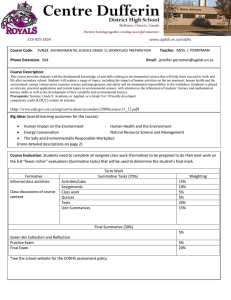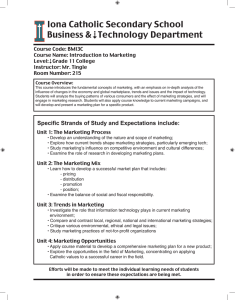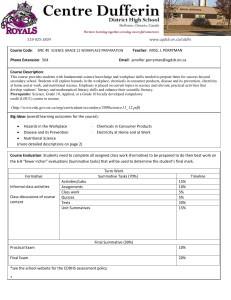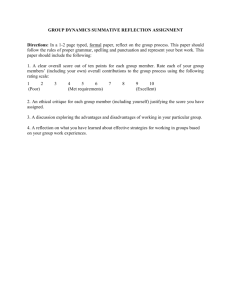Iona Catholic Secondary School Course Code: GLC2O7 Course Name: Career Studies
advertisement
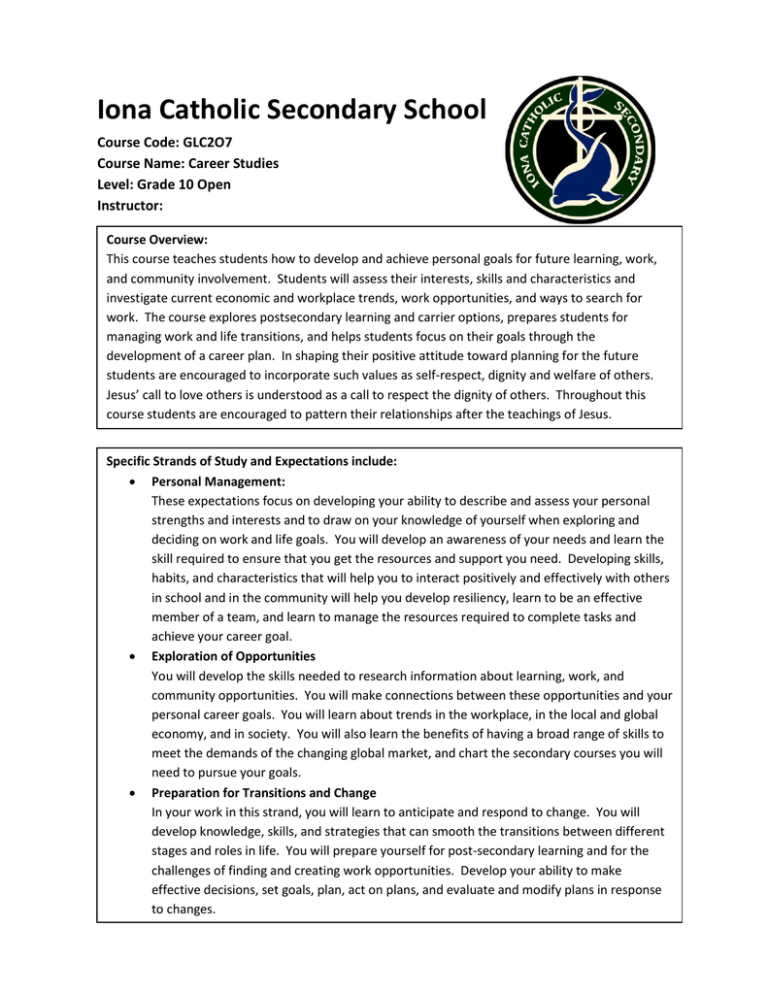
Iona Catholic Secondary School Course Code: GLC2O7 Course Name: Career Studies Level: Grade 10 Open Instructor: Course Overview: This course teaches students how to develop and achieve personal goals for future learning, work, and community involvement. Students will assess their interests, skills and characteristics and investigate current economic and workplace trends, work opportunities, and ways to search for work. The course explores postsecondary learning and carrier options, prepares students for managing work and life transitions, and helps students focus on their goals through the development of a career plan. In shaping their positive attitude toward planning for the future students are encouraged to incorporate such values as self-respect, dignity and welfare of others. Jesus’ call to love others is understood as a call to respect the dignity of others. Throughout this course students are encouraged to pattern their relationships after the teachings of Jesus. Specific Strands of Study and Expectations include: Personal Management: These expectations focus on developing your ability to describe and assess your personal strengths and interests and to draw on your knowledge of yourself when exploring and deciding on work and life goals. You will develop an awareness of your needs and learn the skill required to ensure that you get the resources and support you need. Developing skills, habits, and characteristics that will help you to interact positively and effectively with others in school and in the community will help you develop resiliency, learn to be an effective member of a team, and learn to manage the resources required to complete tasks and achieve your career goal. Exploration of Opportunities You will develop the skills needed to research information about learning, work, and community opportunities. You will make connections between these opportunities and your personal career goals. You will learn about trends in the workplace, in the local and global economy, and in society. You will also learn the benefits of having a broad range of skills to meet the demands of the changing global market, and chart the secondary courses you will need to pursue your goals. Preparation for Transitions and Change In your work in this strand, you will learn to anticipate and respond to change. You will develop knowledge, skills, and strategies that can smooth the transitions between different stages and roles in life. You will prepare yourself for post-secondary learning and for the challenges of finding and creating work opportunities. Develop your ability to make effective decisions, set goals, plan, act on plans, and evaluate and modify plans in response to changes. Evaluation Structure: Term and Summative work is weighted in 4 categories: Knowledge/Understanding..........25% Thinking.......................................25% Communication...........................25% Application..................................25% The above is reflected in the term work (70% of final mark) and the summative work (30% of final mark). Summative work consists of: 15% My Career Education Portfolio 15% Exploring Opportunities Within My Community Evaluation Policy: Students will be assessed and evaluated according to the work produced and skills developed. Methods of providing feedback will include assessing work in progress and evaluating completed assignments, tests, co-operative activities, simulations and presentations. Peer and self-evaluations will be utilized. Student marks will be determined by evaluating process and product according to 4 categories and 4 levels. The chart below defines the specific skills and key words used to determine student competency in different categories: Category Level 1 Level 2 Level 3 Level 4 Knowledge & Understanding Knowledge of facts and terms Understanding of concepts and relationships Thinking Critical thinking skills Limited Some success Considerable Thorough Creative thinking skills display of in displaying display of understanding Inquiry skills knowledge, knowledge, knowledge, of concepts Communication skills and skills and skills and and ability to Communication of ideas and ability to application of ability to apply communicate, information apply concepts. concepts. think Use of symbols and visuals concepts. creatively and Oral and written presentation apply Application concepts. Applications in familiar contexts Transfer of concepts to new contexts Making logical conclusions and predictions The following student learning skills are assessed independently and feedback provided on reports: Responsibility, Organization, Independence, Collaboration, Initiative, Self-Regulation. E = Excellent G = Good S = Satisfactory N = Needs Improvement
